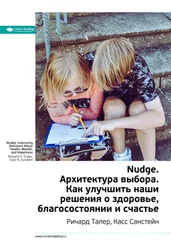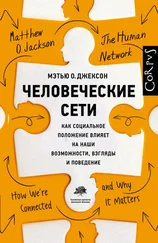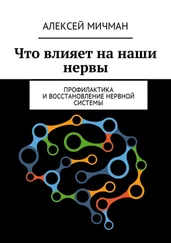106. P. Lewicki, T. Hill, and E. Bizot. Acquisition of procedural knowledge about a pattern of stimuli that cannot be articulated. Cognitive Psychology, 20(1):24–37, 1988.
107. B. Libet. Unconscious cerebral initiative and the role of conscious will in voluntary action. 8:529–566, 1985.
108. E. F. Loftus and J. C. Palmer. Reconstruction of automobile destruction: An example of the interaction between language and memory. Journal of Verbal Learning and Verbal Behavior, 13(5):585–589, 1974.
109. E. F. Loftus and J. E. Pickrell. The formation of false memories. Psychiatric Annals, 25(12):720–725, 1995.
110. G. D. Logan and M. J. C. Crump. Cognitive illusions of authorship reveal hierarchical error detection in skilled typists. Science, 330(6004):683–686, 2010.
111. C. G. Lord, L. Ross, and M. R. Lepper. Biased assimilation and attitude polarization: The effects of prior theories on subsequently considered evidence. Journal of Personality and Social Psychology, 37:2098–2109, 1979.
112. N. R. F. Maier. Reasoning in humans. ii. The solution of a problem and its appearance in consciousness. Journal of Comparative Psychology, 12(2):181, 1931.
113. M. McCloskey and M. Zaragoza. Misleading postevent information and memory for events: Arguments and evidence against memory impairment hypotheses. Journal of Experimental Psychology: General, 114(1):1–16, 1985.
114. E. McGinnies. Emotionality and perceptual defense. Psychological Review, 56(5):244–251, 1949.
115. H. McGurk and J. MacDonald. Hearing lips and seeing voices. Nature, 1976.
116. N. L. Mead, R. F. Baumeister, F. Gino, M. E. Schweitzer, and D. Ariely. Too tired to tell the truth: Self-control resource depletion and dishonesty. Journal of Experimental Social Psychology, 45(3):594–597, 2009.
117. B. E. Meyerowitz, J. G. Williams, and J. Gessner. Perceptions of controllability and attitudes toward cancer and cancer patients. Journal of Applied Social Psychology, 17:471–492, 1987.
118. D. C. Molden, C. M. Hui, A. A. Scholer, B. P. Meier, E. E. Noreen, P. R. Dagostino, and V. Martin. Motivational versus metabolic effects of carbohydrates on self-control. Psychological Science, 23(10):1137–1144, 2012.
119. N. Moray. Attention in dichotic listening: Affective cues and the influence of instructions. Quarterly Journal of Experimental Psychology, 11(1):56–60, 1959.
120. E. Morsella. The function of phenomenal states: Supramodular interaction theory. Psychological Review, 112(4):1000–1021, 2005.
121. E. Morsella and J. A. Bargh. Unconscious action tendencies: Sources of ‘un-integrated’ action. In Decety and Cacioppo, editors, Handbook of Social Neuroscience, 2011.
122. E. Morsella, S. C. Krieger, and Jj. A. Bargh. The primary function of consciousness: Why skeletal muscles are voluntary muscles. In E. Morsella, J. A. Bargh, and P. M. Gollwitzer, editors, Oxford Handbook of Human Action, pages 625–634, 2009.
123. M. Muraven and R. F. Baumeister. Self-regulation and depletion of limited resources: Does self-control resemble a muscle? Psychological Bulletin, 126(2):247–259, 2000.
124. M. Muraven, D. M. Tice, and R. F. Baumeister. Self-control as a limited resource: Regulatory depletion patterns. Journal of Personality and Social Psychology, 74:774–789, 1998.
125. R. E. Nisbett and T. D. Wilson. Telling more than we can know: Verbal reports on mental processes. Psychological Review, 84(3):231–259, 1977.
126. B. A. Nosek, A. G. Greenwald, and M. R. Banaji. The implicit association test at age 7: A methodological and conceptual review. In J. A. Bargh, editor, Social Psychology and the Unconscious: The Automaticity of Higher Mental Processes, pages 265–292, 2007.
127. M. Oaten and K. Cheng. Longitudinal gains in self-regulation from regular physical exercise. British Journal of Health Psychology, 11(4):717–733, 2006.
128. B. K. Payne. Prejudice and perception: The role of automatic and controlled processes in misperceiving a weapon. Journal of Personality and Social Psychology, 81(2):181, 2001.
129. R. M. Perloff. The Dynamics of Persuasion. Lawrence Erlbaum Associates, 2003.
130. J. Perner, U. Frith, A. M. Leslie, and S. R. Leekam. Exploration of the autistic child’s theory of mind: Knowledge, belief, and communication. Child Development, pages 689–700, 1989.
131. M. Pessiglione, L. Schmidt, B. Draganski, R. Kalisch, H. Lau, R. J. Dolan, and C. D. Frith. How the brain translates money into force: A neuroimaging study of subliminal motivation. Science, 316(5826):904–906, 2007.
132. W. Phillips, S. Baron-Cohen, and M. Rutter. Understanding intention in normal development and in autism. British Journal of Developmental Psychology, 16(3):337–348, 1998.
133. D. A. Pizarro, C. Laney, E. K. Morris, and E. F. Loftus. Ripple effects in memory: Judgments of moral blame can distort memory for events. Memory & Cognition, 34(3):550–555, 2006.
134. A. R. Pratkanis. The Science of Social Influence. Psychology Press, 2007.
135. E. Pronin, C. Y. Olivola, and K. A. Kennedy. Doing unto future selves as you would do unto others: Psychological distance and decision making. Personality and Social Psychology Bulletin, 34(2):224–236, 2008.
136. D. Read and B. Van Leeuwen. Predicting hunger: The effects of appetite and delay on choice. Organizational Behavior and Human Decision Processes, 76(2):189–205, 1998.
137. A. S. Reber. Implicit learning of artificial grammars. Journal of Verbal Learning and Verbal Behavior, 6(6):855–863, 1967.
138. A. S. Reber. Implicit learning and tacit knowledge. Journal of Experimental Psychology: General, 118(3):219–235, 1989.
139. P. Rozin, J. Haidt, and K. Fincher. From oral to moral. Science, 323:1179–1180, 2009.
140. K. Sekiyama and Y. Tohkura. McGurk effect in non-English listeners: Few visual effects for Japanese subjects hearing Japanese syllables of high auditory intelligibility. The Journal of the Acoustical Society of America, 90:1797–1805, 1991.
141. L. Shams, Y. Kamitani, and S. Shimojo. What you see is what you hear. Nature, 408:788, 2000.
142. L. Shams, Y. Kamitani, and S. Shimojo. Visual illusion induced by sound. Cognitive Brain Research, 14(1):147–152, 2002.
143. Y. Shoda, W. Mischel, and P. K. Peake. Predicting adolescent cognitive and self-regulatory competencies from preschool delay of gratification: Identifying diagnostic conditions. Developmental Psychology, 26(6):978–986, 1990.
144. T. Singer, B. Seymour, J. P. O’doherty, K. E. Stephan, R. J. Dolan, and C. D. Frith. Empathic neural responses are modulated by the perceived fairness of others. Nature, 439:466–469, 2006.
145. A. Slachevsky, B. Pillon, P. Fourneret, P. Pradat-Diehl, M. Jeannerod, and B. Dubois. Preserved adjustment but impaired awareness in a sensory-motor conflict following pre-frontal lesions. Journal of Cognitive Neuroscience, 13(3):332–340, 2001.
146. D. A. Small, G. Loewenstein, and P. Slovic. Sympathy and callousness: The impact of deliberative thought on donations to identifiable and statistical victims. Organizational Behavior and Human Decision Processes, 102(2):143–153, 2007.
147. A. P. Smith, R. Clark, and J. Gallagher. Breakfast cereal and caffeinated coffee: Effects on working memory, attention, mood, and cardiovascular function. Physiology & Behavior, 67(1):9–17, 1999.
148. Victoria Southgate. Early manifestations of mindreading. In S. Baron-Cohen, H. Tager-Flusberg, and M. V. Lombardo, editors, Understanding Other Minds, pages 3–18. Oxford University Press, 2013.
149. S. Stepper and F. Strack. Proprioceptive determinants of emotional and nonemotional feelings. Journal of Personality and Social Psychology, 64:211–220, 1993.
150. T. F. Stillman, D. M. Tice, F. D. Fincham, and N. M. Lambert. The psychological presence of family improves self-control. Journal of Social and Clinical Psychology, 28(4):498–529, 2009.
Читать дальше
Конец ознакомительного отрывка
Купить книгу

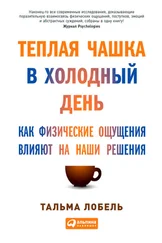


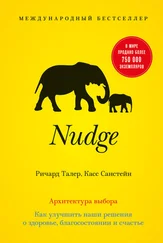
![Мэтью Джексон - Человеческие сети [Как социальное положение влияет на наши возможности, взгляды и поведение]](/books/390847/metyu-dzhekson-chelovecheskie-seti-kak-socialnoe-po-thumb.webp)

